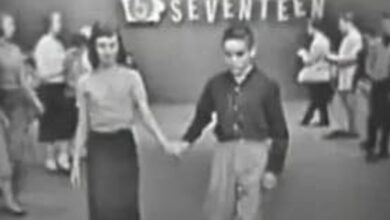The tears flow hearing Marty Haggard’s son sing one of his father’s songs.
“Mama’s Hungry Eyes” is a poignant country ballad originally penned and performed by Merle Haggard, released in 1968. The song holds a special place in country music history for its heartfelt tribute to Haggard’s mother, reflecting the hardships and sacrifices she endured while raising her children alone. Following the death of her husband when Merle was just nine years old, his mother took on the immense responsibility of supporting her family.
The original version of “Mama’s Hungry Eyes” paints a vivid picture of the emotional and physical toll taken on a mother who, despite her struggles, always found strength and love for her children. The song’s lyrics highlight her dedication and resilience, offering a deeply personal and moving narrative that resonates with listeners on an emotional level.
In a touching tribute to his father’s legacy, Marty Haggard, Merle’s son, recorded his own rendition of “Mama’s Hungry Eyes,” adding a new dimension to the classic song. Marty’s version includes additional lyrics that expand on the original story, emphasizing the relentless work his grandmother undertook to provide for her family. The new verse captures the essence of her tireless effort:
“She worked at a truck stop, washing dishes and plates
And when she came home, she was too tired to eat
But she’d always find time to sit and sing us a song
And we knew that we had a home.”
Marty Haggard’s rendition not only honors his father’s iconic version but also infuses it with his personal touch, showcasing his unique vocal style and deep respect for the original work. His version of the song reinforces the themes of sacrifice, love, and family, celebrating his grandmother’s enduring legacy.
Merle Haggard’s original “Mama’s Hungry Eyes” is celebrated for its raw emotion and authenticity, and Marty’s adaptation further enriches the song’s narrative. Both versions underscore the song’s significance in the country music canon, highlighting the powerful connection between family and the enduring impact of personal stories told through music. The song remains a testament to the unbreakable bonds of family and the sacrifices made by those who nurture and support loved ones.





